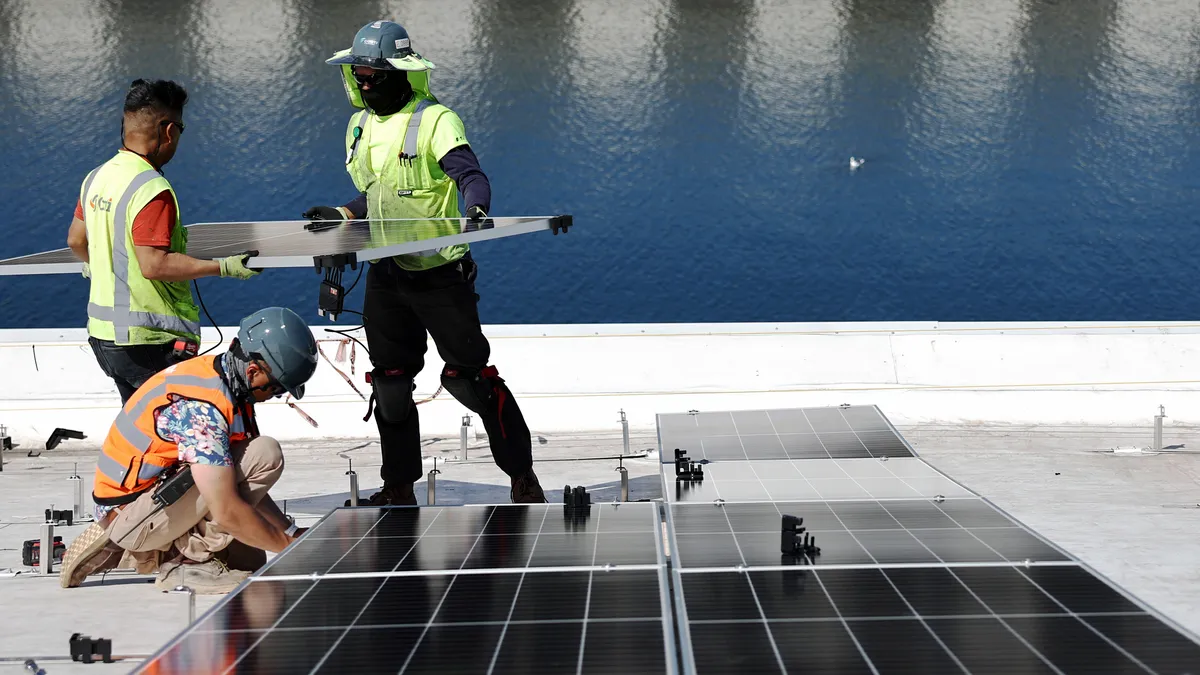Dive Brief:
- The U.S. Department of Commerce has pushed to Aug. 17 from May 1 its deadline for a final determination in an investigation into whether solar panels imported from four Southeast Asian countries circumvented tariffs on Chinese-made components.
- The delay is “due to the extraordinarily complex nature of these inquiries,” a Commerce spokesperson said in an email. The agency “will continue to rigorously analyze the information on record” and consider all interested parties' comments.
- Both the House and Senate have approved a resolution that would end a two-year tariff pause the Biden administration established to alleviate supply constraints for the solar industry. President Joe Biden has promised to veto the measure.
Dive Insight:
In an April 26 memo filed in the case docket, Commerce said it needs more time to consider “extensive case and rebuttal briefs submitted by approximately 20 interested parties.”
“Additionally, these inquiries pose numerous complex methodological issues for which Commerce requires more time to analyze,” the memo said. The Commerce spokesperson said the department plans to finalize a determination by August 17, and release it the following day.
American Council on Renewable Energy President and CEO Gregory Wetsone said in an emailed comment that he hopes the extension indicates the Commerce Department is “thoughtfully considering the feedback the agency has received and will refrain from moving the goalpost on solar production.”
The department released a preliminary determination in December, finding that four of the eight companies being investigated were guilty of tariff circumvention. Clean energy groups and solar developers have criticized the case’s impact on the solar industry, saying a continued scarcity of solar panel supply will threaten national clean energy goals and implementation of the Inflation Reduction Act.
Pari Kasotia, senior director and head of policy for DSD Renewables, which develops commercial and industrial projects and community solar, said in an interview that she doesn’t think the sector was expecting a delay from Commerce.
“It keeps the solar industry longer in the dark in terms of what the tariffs are going to be, so it creates more uncertainty,” she said. “Companies aren't able to really plan out what happens when the moratorium is lifted next year.”
President Biden’s two-year moratorium on solar panel tariffs extends until June 2024 to give the domestic solar supply chain time to build out. However, the House voted to overturn that pause by a 221-202 margin on April 28, while the Senate voted 56-41 May 3 to also overturn it. Both results were well short of the number of votes needed to override a presidential veto.
Kasotia said disrupting the existing solar manufacturing supply chain will result in fewer projects being built, decarbonization goals will be harder to meet “and frankly, the incentives that the IRA is offering won't get utilized.”
“In an ideal world, we would have invested in domestic solar manufacturing 10 years ago, but that didn't happen,” she said. “So the next best scenario is today, but that requires time.”
A repeal of the moratorium presents less risk for larger, well-capitalized companies, Kasotia said, but would have a big impact on small developers who aren’t as equipped to handle abrupt and volatile changes to the supply chain.
Editor's Note: This story has been updated to include recent developments in the U.S. Senate.














